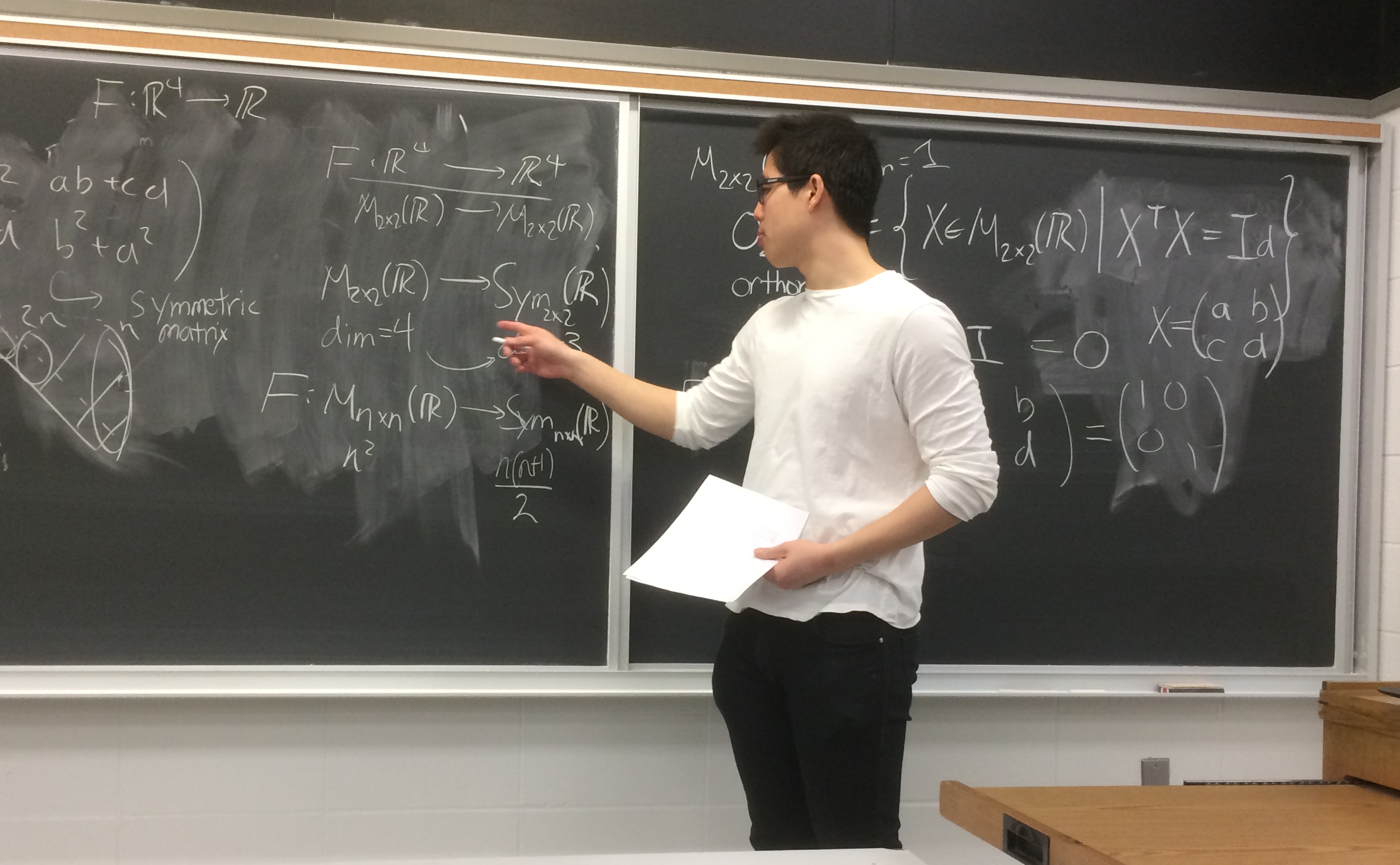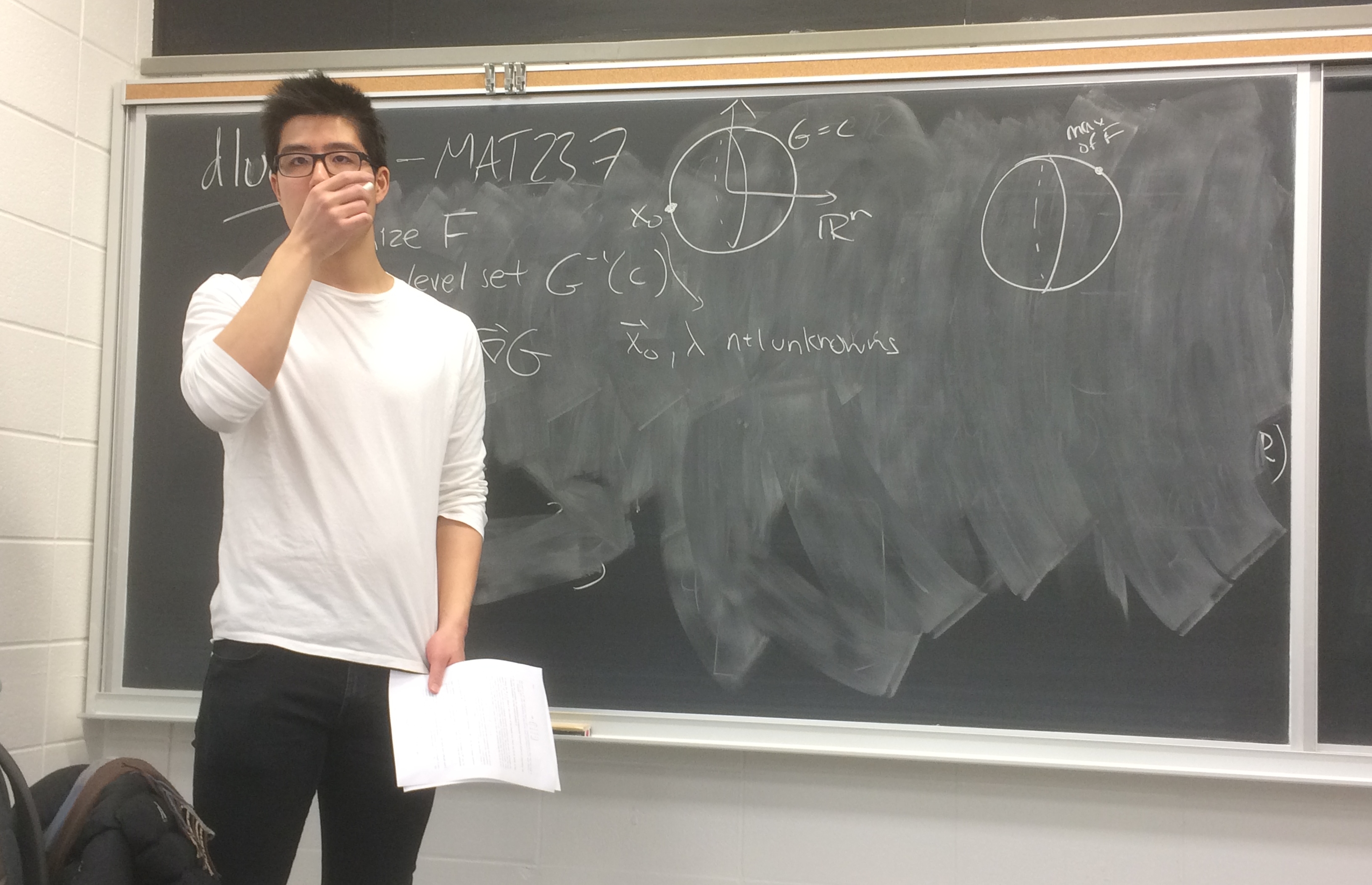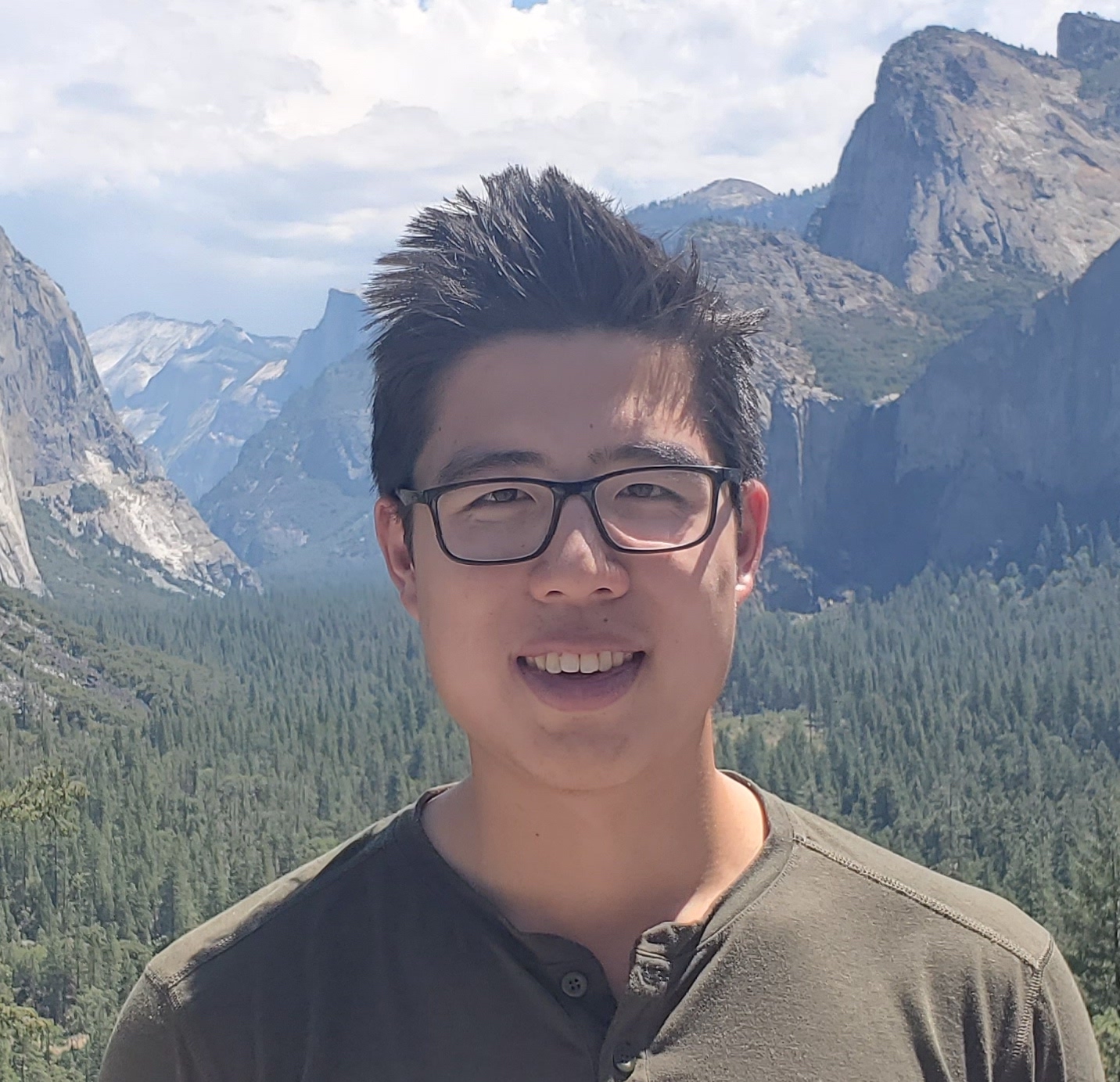My Experience as a TA
22 Mar 2017

I’ve always loved to teach.
In high school, I lead an AP Physics group for one and a half years in which I taught my fellow students the AP Physics B curriculum in preparation for the AP examination. I found teaching to be a very fulfilling experience. It added a new dimension of meaning to my knowledge: I didn’t learn just for my own sake but also so I may help others learn.
In my first year at the University of Toronto, I resolved to become a Teaching Assistant. At UofT, TAs mainly teach tutorials, small interactive classes that focus on the practical applications of concepts taught in lectures. I was motivated by my own experiences in tutorials: the usefulness of having a good TA and the frustration of having a bad one. I wanted to be that good TA.
So in the summer after my first year, I filled out the simple Undergraduate Teaching Assistant application form for the Dept. of Mathematics. I was accepted in early September, the week before class started.
No resume. No interview.
I was surprised at how simple it was. Naturally, I had good grades in the first-year specialist math courses — MAT157, MAT240/247 — but more importantly at the time, the math department was burgeoning with students. Growing enrolment numbers at UofT meant larger first-year classes, especially first-year math courses, which are common program requirements. This drove up the need for math TAs, to my benefit.
For my first teaching assignment, I was assigned to MAT223: Linear Algebra I, which despite its 200-level course code, is meant to be a first-year course (they do this because there’s a limit to how many 100-level courses you can take). I got a lot of questions about how a second-year student could TA a second-year course.
Teaching tutorials was a different experience than teaching my AP Physics group in high school. There were a lot more students and the environment was more serious, and hence, I was nervous and stumbled often. It’s definitely not easy to teach in a classroom setting: to go in front of a class of students and solve problems on the board, it requires much more than knowing just how to do the problems. After all, explaining to others is much more difficult than explaining to yourself.

I eventually got the hang of it.
Now I have been a teaching assistant for nearly two years, and I intend to continue in my last year at UofT. It has been a very rewarding experience to see students progress in their mathematical abilities and reasoning. Furthermore, explaining mathematical concepts also requires you to have a deep understanding of the material. Thus, teaching students has not only improved my own knowledge of mathematics but also allowed me to understand how students learn and where they may have difficulties with the material.
Of course, I still stumble from time to time. When you mess up on the board, there’s really nothing to do except to acknowledge your mistake and move on. Other times a student will ask a question that you don’t know the answer to. In such cases, it’s better to admit ignorance than to feign knowledge, for the benefit of both the student and yourself.
I constantly strive to improve my teaching. To do so, it is important to recognize areas where you lacking, and no one knows that better than your students. Anonymous feedback from my students helped me in identifying areas where I needed improvement that I had never thought of. It’s never pleasant receiving criticism (anonymity brings harshness), but it’s a crucial part of getting better.
Finally, the pay is good: ~$42/hour + benefits and additional funding. However, the pay rate $42/hour is a slightly misleading statistic, which the UofT administration didn’t hesitate to expound during the 2015 TA strike. Teaching Assistants are given contracts, which constitute a set amount of hours for the TA to work throughout the length of the course. These contracts are rigid, meaning that you typically cannot be paid more than what is stipulated on your contract. It is possible for a course coordinator to assign extra hours for new tasks but these assignments must be arranged in advance. It is not possible for a TA to get paid for extra hours retroactively. For example, if you are assigned 6 hours to mark an exam and you end up spending 10 hours marking (often the case), you will not get paid the additional 4 hours. Therefore, TAing is a great opportunity for Undergraduates like me to make some money on the side, but it is less appealing for graduate students who may depend on it as a main source of income.
All in all, it’s a lot of fun and I’ve learned tons. Many of my friends have also followed suit and become TAs with the Dept. of Mathematics. I recommend qualified undergraduate students to consider applying for a teaching assistant position.
Summary
- I first realized I enjoyed teaching when I taught AP Physics in high school. It brings fulfilment and a sense of meaning to knowledge.
- Being able to explain things well to others really tests your own knowledge. Not only do you have to understand the material inside and out, but you have to also understand the areas where students struggle. Being a TA has furthered my own knowledge and communication skills.
- Good money.
Misc
- Math Aid Centre (MAC) assignment hours are fun and relaxing. Students approach you with questions in a 1-on-1 setting and you’re able to spend time with them to go over the material.
- Since I became a TA in second year, it happened often that a classmate in one class was my student in another!
- I greatly prefer teaching over marking. Marking is a chore. Teaching is a choice.
- Undergraduate TAs in the Physics Dept. are nonexistent because there simply isn’t that much demand.
- I have tried to TA with the Math Dept. in the summer but since demand is less, they typically give those assignments to grad students.
- Engineering students are more rowdy then ArtSci students.
Courses I have TA’ed
| Term | Course |
|---|---|
| Winter 2018 | MAT224H : Linear Algebra II |
| Fall 2017 | MAT245H : Mathematical Methods in Data Science |
| Winter 2017 | MAT224H : Linear Algebra II |
| Fall 2016 - Winter 2017 |
MAT237Y : Multivariable Calculus |
| Fall 2016 | MAT188H : Linear Algebra (for Engineers) |
| Winter 2016 | MAT224H : Linear Algebra II |
| Fall 2015 | MAT223H : Linear Algebra I |
